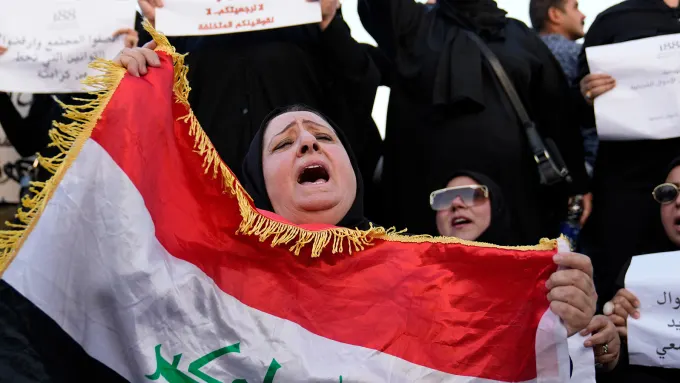
Iraq’s parliament passed a series of controversial laws on Tuesday, January 21, 2025, including amendments to the country’s personal status law that critics warn could effectively legalize child marriage.
The amendments grant Islamic courts greater authority over family matters, including marriage, divorce, and inheritance. Opponents argue that this undermines Iraq’s 1959 Personal Status Law, which previously set legal protections for women and unified family law across religious sects.
The changes, primarily championed by conservative Shiite lawmakers, allow clerics to rule based on their interpretations of Islamic law. While Iraq’s current law sets the minimum marriage age at 18 in most cases, these amendments could permit the marriage of girls in their early teens or as young as nine under the Jaafari school of Islamic law followed by many Shiite religious authorities in Iraq.
Human rights activist Intisar al-Mayali, a member of the Iraqi Women’s League, condemned the amendments, warning that they “will leave disastrous effects on the rights of women and girls” by legalizing child marriage, limiting protections in cases of divorce and custody, and weakening women’s inheritance rights.
The session ended in turmoil, with some lawmakers accusing the parliament of procedural violations. A parliamentary official, speaking anonymously, claimed that “half of the lawmakers present did not vote, breaking the legal quorum.” Protesters within the chamber reportedly shouted in opposition, and some climbed onto the parliamentary podium.
The civil status law amendments were passed alongside two other contentious bills—a general amnesty law, which is seen as favoring Sunni detainees and potentially absolving individuals involved in corruption, and a land restitution law aimed at addressing Kurdish territorial claims.
Independent MP Raid al-Maliki acknowledged that while he and others supported the personal status amendments, “it was combined with other laws to be voted on together… and this might lead to a legal appeal at the Federal Court.”
However, Parliament Speaker Mahmoud al-Mashhadani defended the passage of the laws, calling them “an important step in the process of enhancing justice and organizing the daily lives of citizens.”
In a separate development on Tuesday, at least three Iraqi officers, including the national security chief of the al-Tarmiyah district north of Baghdad, were killed in an explosion at an ammunition depot.
A security official, who spoke on condition of anonymity, stated that the explosion occurred as Iraqi forces conducted an operation targeting Islamic State militants and an arms cache in the area. Four other officers were wounded in the blast.







